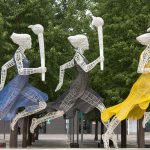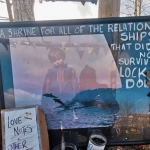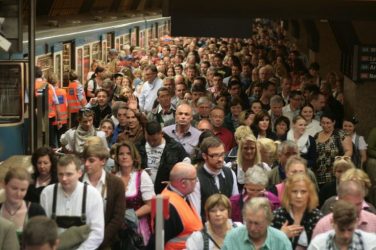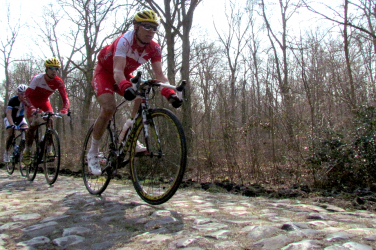E&M‘s Friederike Sandow has sat down with Emma, 27, working in Uganda for a globally operating NGO, to learn about her work and her experiences.
Africa consists of 54 countries (and two unrecognised countries, Somaliland and Western Sahara.) All countries have been colonised (overwhelmingly by European states.) Though some argue that Ethiopia and Liberia have not been colonised, the Second Italo-Abyssinian War (1935-1936) as well as US settlements in Liberia in the 1820s proves otherwise. Ethiopia and Liberia’s colonisation did not occur during the vile ‘scramble for Africa’ but, nonetheless, they have been occupied to a various extent.
The European Member States of today live in a reality where their history with slavery, concentration camps, stealing of land and property, drawing borders on a map that slashed through families and societies, is not sufficiently dealt with. We live in a reality where people are drowning in the Mediterranean, where fortress Europe has installed one of today’s deadliest borders. The ‘Western world’ has significantly contributed to creating war, climate, economic and political refugees and is not taking the responsibility of its actions in its policies. Can NGOs offer relief?
We sat down with Emma. She studied human rights in Italy, after which she moved to the UK and then to Berlin for her MA in European Politics. Having the world at her fingertips, whilst at the same time feeling a burning desire to better the world she lives in, she found herself in Kampala, Uganda, in summer 2018. We chatted to her about the direct impact of the work she does with the NGO, about the ‘white saviour’ narrative and white feminism.
E&M: Hey Emma, thank you so much for sitting down and talking with me. First things first: Why are you in Kampala?
Hey, thanks for wanting to know about my life and job! Well, honestly, I was applying for jobs after my MA and various internships and just knew that I wanted to work for an NGO. I was originally interviewed for a job in the Middle East but was told that there was a position opening up in Uganda. I agreed, packed a suitcase and landed in East Africa not even a month after that call, and here I am still.
The European Member States of today live in a reality where their history with slavery, concentration camps, stealing of land and property, drawing borders on a map that slashed through families and societies, is not sufficiently dealt with.
E&M: Can you explain what your job is, exactly?
Sure! I am in charge of project development for an NGO working in both humanitarian and development aid around the globe. Let me put it this way: on the one hand what I do is looking for funding and applying for funding and designing and writing project strategies (this could be on livelihoods, food security, cash distribution, etc). On the other hand I am involved in reporting to donors of funded projects, external representation with UN agencies and all relevant humanitarian stakeholders. In Uganda this means mainly dealing with refugee response – Uganda is the largest refugee-hosting country in Africa and the second worldwide. I often go ‘to the field‘ (meaning – visiting sites outside Kampala) where our projects are implemented. I have to go to provide support and guidance and check that everything is running as it should.

E&M: Hands down – where is the direct impact of the work you do? Is it measurable? Do you sometimes have doubts about that?
I am guessing you mean the work of my NGO itself, right? Well, in Uganda we have development oriented projects with an impact on several thousand households. We have livelihoods and food security interventions, we promote regenerative agriculture which in turn should boost food income and address root causes of climate change such as landscape degradation and desertification. We also have more humanitarian projects involving unconditional cash transfers to address immediate needs, especially for newly arrived refugees. Or we contribute to short till medium term employment through ‘cash for work activities‘. We measure our impact via a ‘Monitoring & Evaluation Unit’ whose primary goal is to set indicators and targets for each project and to conduct assessments to verify that the results set at the project design phase are being reached. On top of our qualitative and quantitative research, we have complaints and response mechanisms so that the beneficiaries themselves can report any issue or problem – which is relevant for us to either adjust a project or to take it into account for future lessons learnt.
So yes, I am convinced that the work my NGO does has a positive impact.
However, I often find myself doubting if national governments will be able to take on what is done by other actors. Ideally, the aim of any NGO’s work should be to close offices and to handover to national governments and civil society. In a Utopian world we would close offices altogether because we have won the fight against poverty. Of course we are also constantly evaluating if our work creates co-dependencies, and if, how to prevent that.
E&M: Have you ever felt like the white ‘men/women’ swooping in all colonialist? Is there truth to that?
Of course I have. As a white woman in Africa you always stand out. I have found that the best thing to do is to never, ever, adopt any ‘saviour behaviour’ nor a ‘I am like you guys’ narrative because that‘d be obviously bullshit and very degrading. I can try and understand their life, views and angle and educate myself, but I will never know-know, of course. Really, I just use my common sense.
Ideally, the aim of any NGO’s work should be to close offices and to handover to national governments and civil society. In a utopian world we would close offices altogether because we have won the fight against poverty.
I am curious about other cultures and if your national colleagues invite you to their homes – go for it, be respectful. I think I am putting a lot of effort to really trying to not live a parallel life. I want to be with nationals without thinking I am one. I don‘t know if this all makes sense, it‘s difficult to put into words.
E&M: No, I get it. That question wasn’t really fair. So, let‘s hear it: what do you love about Uganda?

The colours, the chaos, the boda-bodas, the always always always happy people, the slow attitude to life, the nature, the sunsets.
E&M: What do you dislike?
Bugs and the corruption (and I am Italian…).
E&M: Do you sometimes feel unsafe? If yes, why?
I have been in tense situations, yes. However, I want to stress that of course I cannot compare Kampala to any European city I have lived in, but the standards I apply are nevertheless the same: I am always aware of my surroundings and I am never reckless, not in Berlin, not in Kampala.
E&M: If possible, and I know it might not – I would like to get a feeling for how you feel as a woman, if you can elaborate. What is it like, from your point of view, to be a white woman in Africa?
As I said, the prevailing feeling for me is that I am white. Without judgement, it is just the overarching theme. Being a woman ranks second.

Let me try and explain. First of all, I cannot allow myself the time – yet, at least – to complain about my perceived lack of or worry about feminism. Secondly, I cannot answer this without consulting the women and networks here. I don‘t want to give a white privileged response, I definitely do not have enough knowledge, nor credibility, to speak on this.
That’s why it would feel so wrong for me to explain my ‘white feminism’ issues. At the same time, I am learning so much. Every day I see so many powerful women, in the office, in the city, and even in remote villages. If a man leaves to look for economic opportunities, it is the woman who will oversee livestock and food. Women often are the decision makers in the households. At the same time, I am aware of some traditional rituals in villages where there are set rules and procedures to “buy” off a woman from her family. Of course that shocks me.
E&M: Do you think as a male your experience would be different?
Personally, I don’t think my experience would have been different. When I am out on the field and in the team I actually feel appreciated a lot, precisely because I am a woman – which of course can be odd too. Like, I can get annoyed if I automatically get the best seat in the car all the time – but this might be because I am white and not because I am a woman. I just have no way to tell.

I have felt that I have been treated differently, yes, but I think more because of the colour of my skin and not my sex. What that means and where feminism in Africa starts is a whole different level of analysing that momentarily I can’t allow headspace for – and, again: I will not speak for them, I can’t. I have almost always been treated very respectfully and friendly. I cannot make being treated differently my daily worry or outrage, I need to choose my battles. After all, I am a guest in their country, no matter what I am here for.
E&M: Any closing remarks?
I love this country. It infuriates me, amazes me and has opened my eyes in more ways than I can describe. I will go back to Europe eventually and of course I am already dreading this day. I don’t think I will ever really be able to leave this place, really. It definitely will never leave me.
Cover Photo: City of Kampala, Emma’s private collection.










